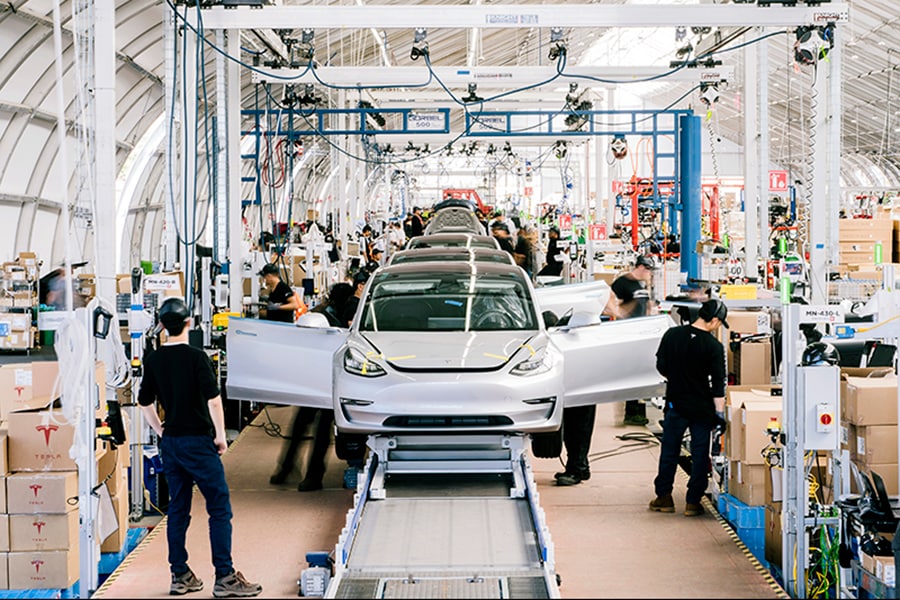
Tesla's stock is up 36% in two days. What's going on?
The electric-car manufacturer's shares closed at $887 on Tuesday, up from $650 two trading days earlier—a gain of 36%. Since the start of the year, the price has more than doubled
 A Tesla Model 3 assembly line at Tesla's factory in Fremont, Calif., on June 28, 2018. The electric-car manufacturer’s shares were trading above $920 on Tuesday, Feb. 4, a gain of more than 40 percent in less than a week
A Tesla Model 3 assembly line at Tesla's factory in Fremont, Calif., on June 28, 2018. The electric-car manufacturer’s shares were trading above $920 on Tuesday, Feb. 4, a gain of more than 40 percent in less than a weekImage: Justin Kaneps/The New York Times
There’s a new rocket ship from Elon Musk: Tesla’s stock.
The electric-car manufacturer’s shares closed at $887 on Tuesday, up from $650 two trading days earlier — a gain of 36%. Since the start of the year, the price has more than doubled.
You can credit much of the increase to the seemingly boundless enthusiasm of Tesla’s supporters, for whom Musk, the chief executive, is a hero. But the haters appear to be playing a role, too: After betting that the company would fail, many seem to be cutting their losses — and that is actually pushing shares higher.
Here’s what’s happening.
Why are investors so enthusiastic about Tesla?
To the bulls, Tesla is positioned for greatness now that it has recovered from a rocky start to 2019.
©2019 New York Times News Service




